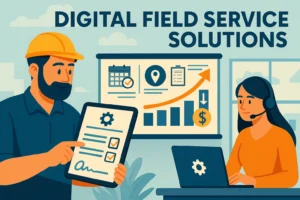You should track employee hours to ensure your employees are paid for all their hours and billed accurately for projects. Getting it right protects you from payroll hassles and ensures your compliance. Each company has its own approach. So, we at Shifton are on a mission to share our insights on the importance of monitoring hours and the most effective methods to go about it. Stay tuned — it's beneficial for any business!
Why You Should Track Employee Hours
Working on employee time management helps you understand how your team spends their hours, boosting productivity, improving project planning, and managing costs effectively. Here is why:
- Nailing Payroll: Accurate payroll is essential for businesses with hourly employees. Tracking hours ensures that everyone gets paid for their work and helps prevent time theft and payroll errors. Integrating automated time tracking with your payroll system simplifies the process and minimises timesheet mistakes.
- Staying Compliant: Staying on the right side of the law means following regulations like the Fair Labor Standards Act, which requires employee tracking time. It's all about counting their daily and weekly hours and wages to ensure you're playing by the rules.
- Perfecting Project Planning: When you track employee hours, you understand how long tasks take, which is invaluable for planning projects accurately. It's a win-win for both bosses and the team.
- Benefitting Everyone: Tracking hours helps your team manage their time better. When tracking is automated, less time is spent filling out sheets, and more time is spent doing work.
- Being a Superb Manager: If you don't track employee hours, you might check on everything too much. But with a timesheet tracker, you have enough data to see what needs fixing and build trust with your team.
5 Simple Methods to Track Employee Hours
Now that you understand why call centre time tracking is a big deal and its relevance to any business, let's check out the five most common ways to do it. Let's get started:
1. Tracking Hours Manually
If you're new to tracking time, the simplest way to start is the old-fashioned way. Get your team to note the time when they start and finish. But be warned: adding up hours by hand can be a bit of a chore, and mistakes are bound to happen.
2. Using Paper Timesheets
Paper timesheets are a step up from jotting things down on paper. Instead, you fill in hours on a spreadsheet like Excel or Google Sheets. Thanks to the magic of formulas, it's easier to add up the total hours. This method works well for small teams where you don't want to spend too much time on it.
3. Work Timesheet Apps
Time tracking software monitors employee hours on salary, hourly, or contract. It works on computers and phones and even integrates with work timesheet apps, making it super easy to manage time.Such applications assist in monitoring chargeable and non-chargeable time, which is fantastic for maintaining efficiency and overseeing financial plans. There are loads of options for time-keeping in hotels, restaurants, medical centres, call centres, real estate time-tracking software, and any other businesses. Amazing!
4. Time Clocks
A punch clock is a simple solution for businesses where everyone's mostly in one or two places. Employees punch in and out, which is handy for places like factories where they're not always on computers or phones.Setting up a time clock costs a bit upfront, but it's a one-time thing that makes tracking hours a breeze.
5. GPS Check-In
A regular tracking hours app might not do the trick if your team is always on the go. That's where GPS tracking comes in. With GPS apps, you can see exactly where your crew is. And it's not just for paying them — it can also help determine other bonuses based on their performance. Are you interested? Let’s look at it closer!
How Employee GPS Tracking Works
Employee GPS tracking is all about using GPS technology to track employee hours as they go about their workday. It is convenient for businesses with folks on the move, like delivery services or field technicians. In agriculture, property management, logistics, delivery, or construction, timesheet software amplifies productivity, completes tasks effectively, and ensures safety.Big names like UPS use this tech to make their delivery routes slicker, while utility companies send out their repair crews faster. Automating time monitoring makes things run smoother and keeps the team safe.Here's how it works: Employees carry GPS-enabled gadgets, such as smartphones or special trackers. These gadgets send location data to a central system, which allows managers to monitor where everyone is in real time, spot trends in the data, and tweak operations as needed.
Here's a Final Thought to Consider
It's essential to keep track of how much your team works. It helps you make smart business decisions, like ensuring everyone's doing their best, following the rules, and getting paid right. GPS apps are a popular choice for keeping track. They're easy to use, especially on phones, and they don't cost much. They also come with cool features like showing where your team is in real-time and making reports.Look for a simple app like Shifton to get everyone on board. We offer:
- Complete route mapping showing where your team's been during their shift, with all the timestamps.
- Stats on how your team's moving around for some detailed insights.
Are you feeling nervous about setting it all up? No worries! When you partner with us, we've got your back every step of the way. We take full responsibility for ensuring everything's up and running smoothly. Our customer support team is always here to lend a hand, whether through online resources, a quick call, or an email chat. With Shifton, you can easily track employee hours and boost your team’s effectiveness!If you've made it this far in the article, it's your turn to give our offer a shot!
Daria Olieshko
A personal blog created for those who are looking for proven practices.

 English (US)
English (US)  English (GB)
English (GB)  English (CA)
English (CA)  English (AU)
English (AU)  English (NZ)
English (NZ)  English (ZA)
English (ZA)  Español (ES)
Español (ES)  Español (MX)
Español (MX)  Español (AR)
Español (AR)  Português (BR)
Português (BR)  Português (PT)
Português (PT)  Deutsch (DE)
Deutsch (DE)  Deutsch (AT)
Deutsch (AT)  Français (FR)
Français (FR)  Français (BE)
Français (BE)  Français (CA)
Français (CA)  Italiano
Italiano  日本語
日本語  中文
中文  हिन्दी
हिन्दी  עברית
עברית  العربية
العربية  한국어
한국어  Nederlands
Nederlands  Polski
Polski  Türkçe
Türkçe  Українська
Українська  Русский
Русский  Magyar
Magyar  Română
Română  Čeština
Čeština  Български
Български  Ελληνικά
Ελληνικά  Svenska
Svenska  Dansk
Dansk  Norsk
Norsk  Suomi
Suomi  Bahasa
Bahasa  Tiếng Việt
Tiếng Việt  Tagalog
Tagalog  ไทย
ไทย  Latviešu
Latviešu  Lietuvių
Lietuvių  Eesti
Eesti  Slovenčina
Slovenčina  Slovenščina
Slovenščina  Hrvatski
Hrvatski  Македонски
Македонски  Қазақ
Қазақ  Azərbaycan
Azərbaycan  বাংলা
বাংলা 

